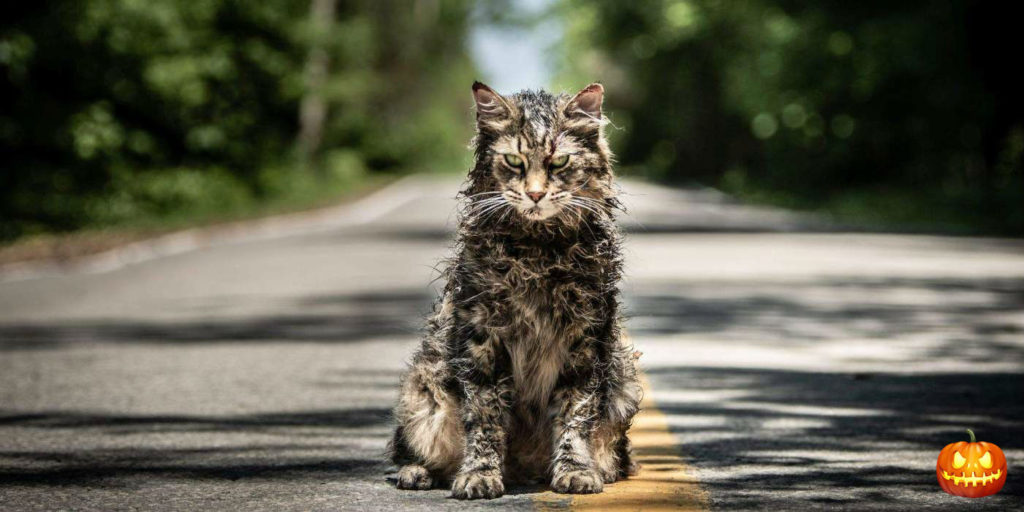The road to Halloween is paved with good films. Wherein we countdown to the spirited season with a hundred doses of horror. 89 days to go.
Coming off their well-received psychological thriller, Starry Eyes, directors Kevin Kölsch and Dennis Widmyer are digging up the undead by offering a new adaptation of the Stephen King 1983 classic, Pet Sematary. After the critically mediocre received adaption by Mary Lambert in 1989, would the spirits rise this time for a story of which King himself had said had “gone too far this time”?
They do. But in a similar fashion to those in the story. The vision is there, but the execution resurrects only a dark shadow of a superior entity that was. 2019’s Pet Sematary is a well-done mainstream horror, but not particularly scary at that. Neither does it bring anything new to the table. The true horror of its premise stays largely untouched. With the narrative rather submerging in standard gore for atmosphere.
What works, however, is the cast, led by Jason Clarke as Louis Creed, a doctor who wants to slow down a notch from his hectic life in the city. He and his wife, Rachel (Amy Seimetz), move their daughter, Ellie (a fantastic Jeté Laurence), and son, Gage, into the stress-free Maine countryside. But the peace and quiet are only an illusion. The first indicator being the motorway passing in front of the house, on which speeding trucks abruptly appear out of nowhere.
Read More from the Film Road to Halloween: The City of the Dead
That is not the only oddity haunting the area. A procession of masked children burying a dead dog trigger Ellie’s interest. As explained by her elderly neighbour, Jud (John Lithgow), the property of the Creeds includes a pet cemetery in the woodlands. He also warns Ellie to never climb across the barricade of old tree trunks in the cemetery. This caution will soon be undone, though, when Ellie’s beloved cat Church is run over by a truck. Rachel, who blames herself for her sister’s death many years ago, can’t handle the topic, and convinces her husband to tell their daughter that the cat simply ran away.
Within this first half, the movie works as a slow build-up. With the idyllic setting turning more unnerving with every second that passes. And every frame that puts it more at odds with the character’s initial perception. Tensions are rising, specifically when young Ellie is denied dealing with the concept of death by her parents, who feel the need to protect her from life’s cruelties. This pitfall of misguided parental love is what will trigger the horrors of the second, and unfortunately, way inferior half of the movie.
Jud, who has gotten close to Ellie, offers Louis another solution to handle the situation. Instead of putting Church into the ground in the cemetery, he takes him over the barricade to an ancient tribal burial site. The next day, Church is alive again, but untypically aggressive and in a shabby condition. With Ellie’s pet back from the dead, Louis has done exactly what he had been warned of doing in a prior vision. He has disrupted the barrier between the living and the dead. This will set events and consequences into motion, as Church won’t be the last family member to die and come back from the dead.
Read More from the Film Road to Halloween: Paranormal Activity
The story hereafter takes a shift away from the source material, changing narrative arcs and character development. Some of these ideas work well in giving the plot a new spin. But on a whole, the movie stays underdeveloped, and is more concerned about checking off all the important plot points than really setting up its protagonists for the finale. Characters like Jud get reduced to exposition tools, Louis’ student Victor (Obssa Ahmed), whose ghost guards over his child, never receives any agency on why he is doing so.
The movie’s biggest misstep, however, is that instead of tapping into the source material and dealing with death and loss to ignite a specific tragic feel to the film, it rather sticks to its old-school scare jumps and horror build-ups. The viewer doesn’t see or feel much of the loss of the Creed family. Meaning the underlying dark tones of the story can’t gain momentum to fuel the last act. Pet Sematary doesn’t add anything to the material, it’s just a sandbox of standardized horror tools for the directors to have a go at.
These issues are also reflected in the abrupt ending. While it may be argued by the feel of it that the editor just gave up after 100 minutes, this wannabe artsy device also lacks any statement or purpose. When Louis first asks Jud how far his property goes, and is told “farther than you’d ever care to go”, this may apply to the threshold of life and death. But not the chances the movie takes on its potential.

